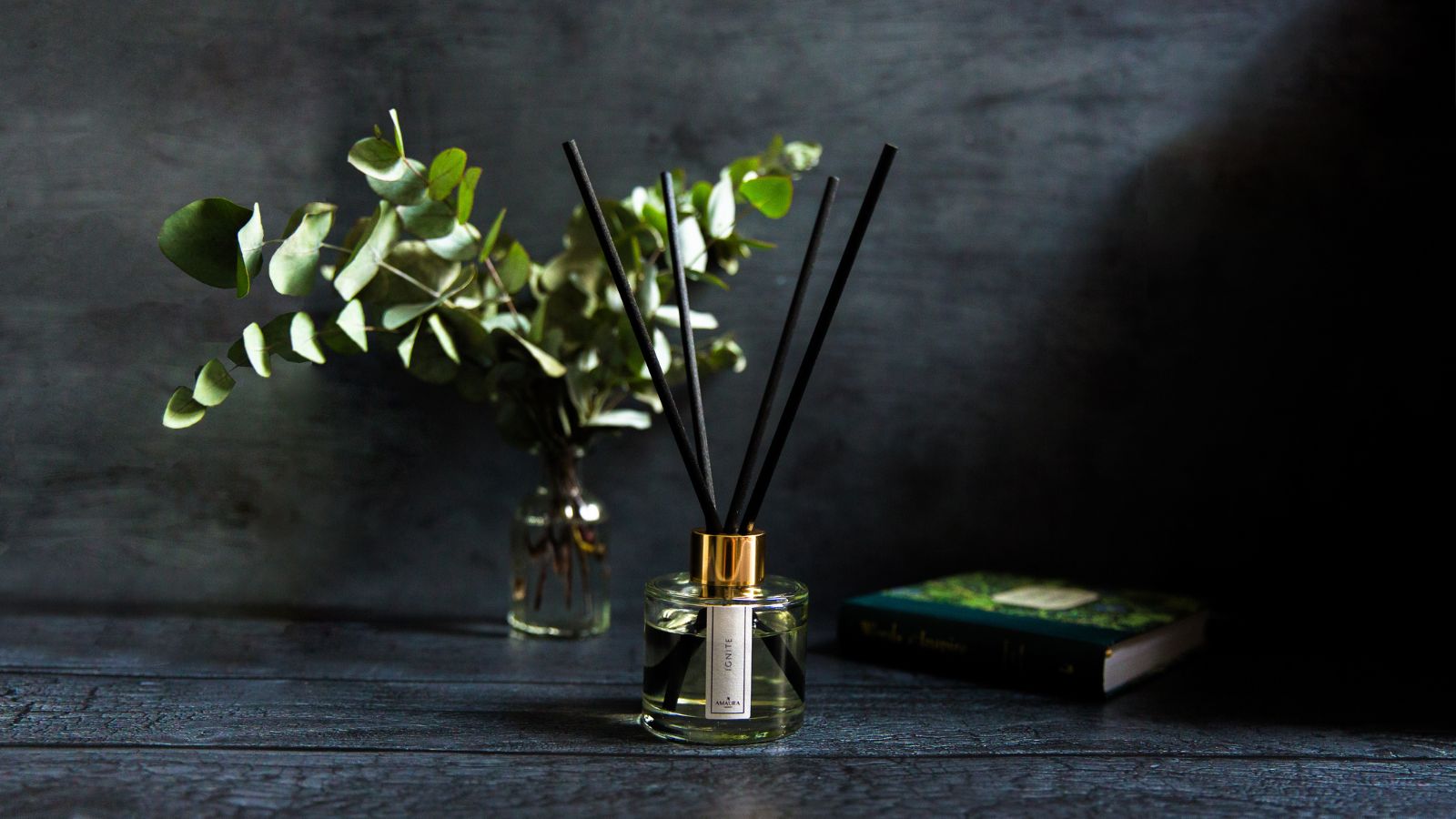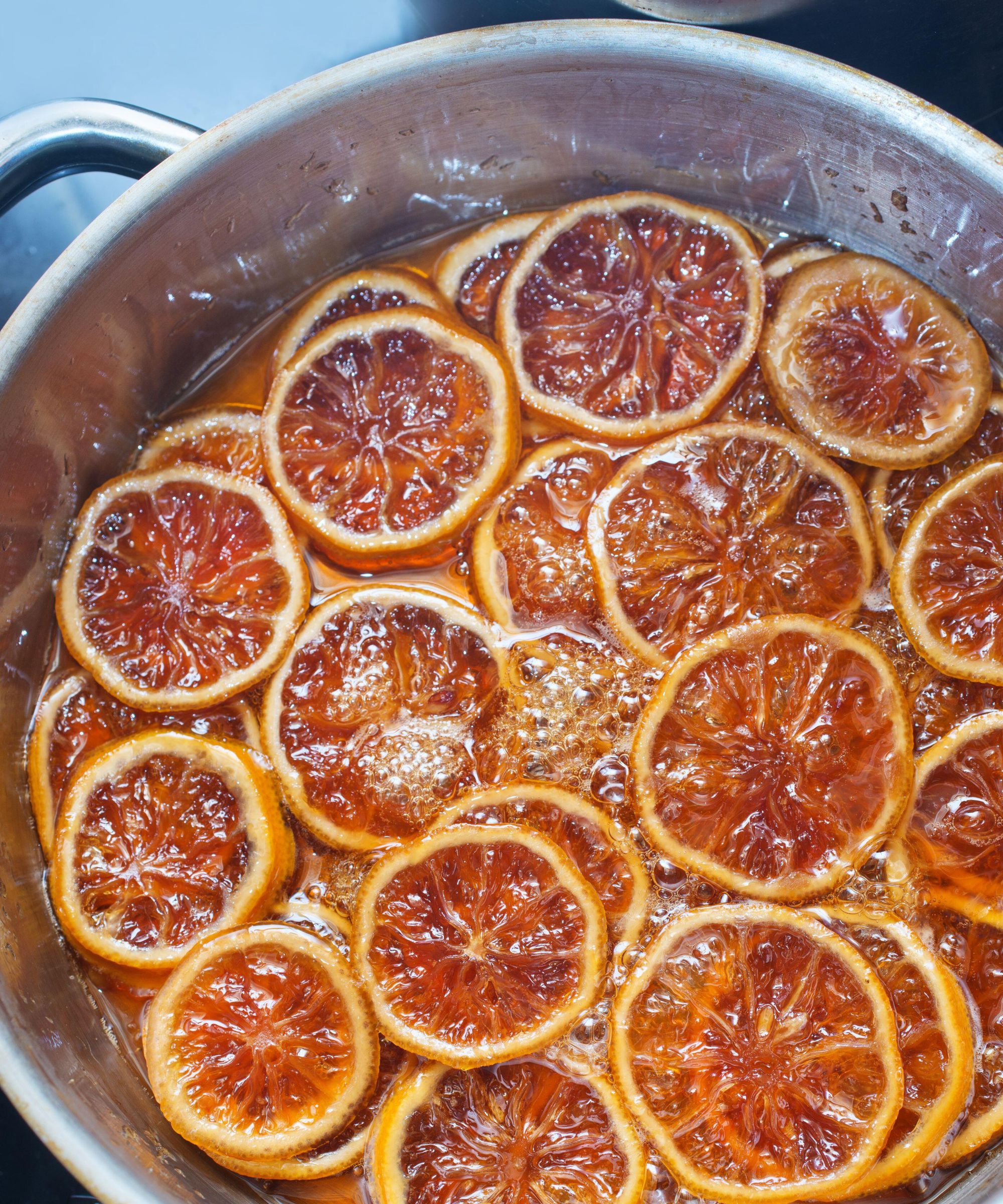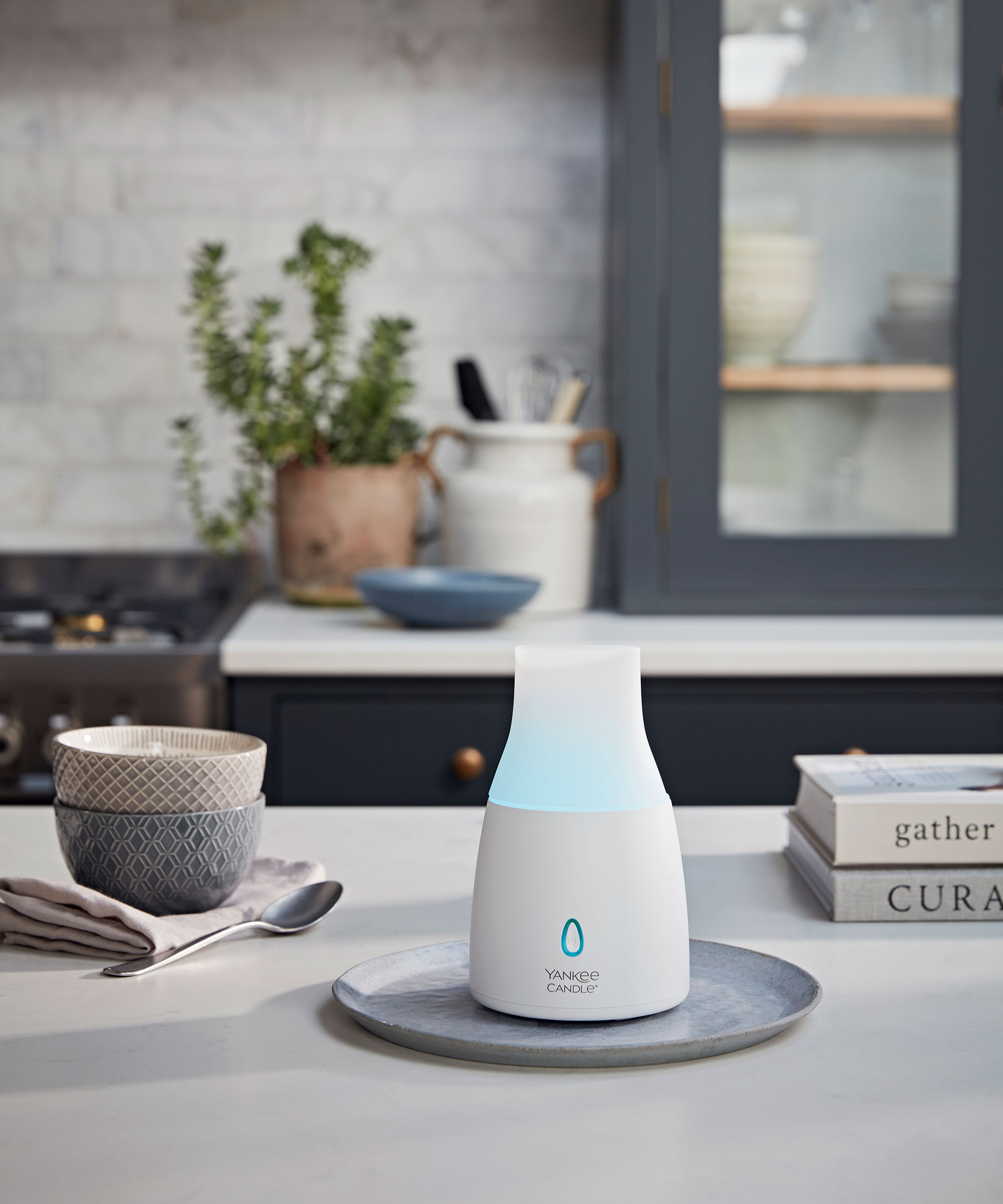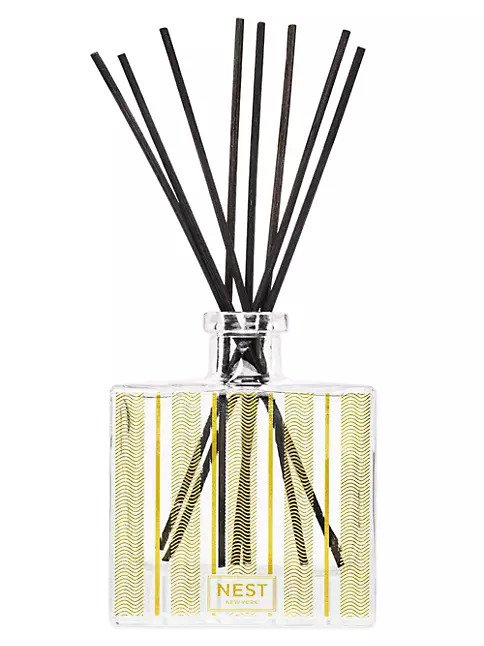How to make a house smell nice (without burning a candle)
Experts love these five candle alternatives for flame-free home fragrance


Scented candles are always seen as essential for making a home cozy, but they can set off breathing issues, and present a fire hazard – especially if you have small children or pets.
Luckily, they are not the only way to make a home smell nice, and several alternatives do just as good a job if not better when fragrance layering in your space, experts assure.
This is how the experts make a house smell nice without burning candles, and why they are the perfect alternatives for those of us sensitive to burning wicks.
How to make a house smell nice without candles
Although it can sometimes be hard to imagine a cozy corner without your best candle, they may not be for everyone, begins Ashley Mecham, interior designer, home blogger, and founder of Nova Home Style:
‘Some individuals may have allergies or heightened sensitivity to candle fumes, given the chemical or synthetic fragrances they emit. This can lead to discomfort such as dizziness, nausea, or skin irritation. Additionally, for those with pets, candles could be a concern as certain ingredients may pose harm to our furry friends.’
1. Reed diffusers

There has been a long-running competition between reed diffusers vs scented candles, but if you are sensitive to strong fragrances, diffusers are the winner, suggests Tabatha Farnel, founder of AromaAuthority:
These produce a subtle, constant scent, similar to a scented candle, without the fire risk. Reed diffusers can also last up to six months when looked after and topped up as needed,’ she explains. ‘While you can make a reed diffuser, high-quality reed diffusers are worth the investment.’
Design expertise in your inbox – from inspiring decorating ideas and beautiful celebrity homes to practical gardening advice and shopping round-ups.
You can find out more about how we test reed diffusers here at Homes & Gardens in our dedicated guide.

Tabatha has a deep appreciation for the intricate blend of notes and the way scents evoke emotions and memories. She holds a degree in biology, and enjoys delving into the scientific aspects of fragrance, consistently expanding her knowledge in the field.
2. Cook up a simmer pot

Simmer pots are great options if you want to scent large areas at once with a strong fragrance, begins Millie Hurst, Solved section editor at Homes & Gardens. The ability to customize the ingredients in these pots, with simmer pot recipes for fall and winter among the most common, means that simmer pots are ideal for both making your home smell good for Christmas and sprucing up your home’s scent in summer.
Simply cut up your chosen fruits and add your favorite herbs and spices to a pot of gently simmering water on the stove, cooking for at least two hours and topping up every half an hour for the best results.

Millie Hurst is Section Editor at Homes & Gardens, overseeing the Solved section, which provides readers with practical advice for their homes. Millie has written about and tried out countless cleaning and DIY hacks in the six years since she became a journalist, and has worked in both London and New York.
3. Use fresh eucalyptus

You may have heard about using eucalyptus in the shower, but have you considered using it to freshen up the rest of your home without candles?
‘Eucalyptus leaves contain aromatic oils that release an invigorating fragrance when crushed or exposed to air,’ explains Diana Ciechorska, general manager at Park Slope Cleaning. ‘Tie a bunch of fresh eucalyptus stems together and hang them in the shower, or place eucalyptus bouquets in vases around the house.’ You can also use eucalyptus to keep insects out of the house naturally, making it a great scent solution for summer.
‘Be sure to look for fresh eucalyptus at local flower markets, grocery stores, or online floral shops for the best-smelling plants,’ Diana suggests. ‘Many health food stores also carry fresh eucalyptus.

Diana is the general manager at Park Slope Cleaning, a commercial cleaning company based in New York City. The organization's commitment to transforming the perception of cleaning services is rooted in the understanding that a clean space not only creates a sense of harmony but also contributes to overall well-being.
4. Diffuse essential oils

Much like a reed diffuser, an essential oil diffuser slowly releases a subtle scent to your space without a live flame with the added benefit of being able to customize the oils to make the best home fragrance.
‘A diffuser works its magic by releasing scented mist into the air, allowing the fragrance to gracefully waft through each room and eventually fill your entire home,’ explains Ashley Mecham, designer. ‘The beauty of this method lies in its flexibility – you can easily control the intensity of the scent. For a subtle aroma, a mere two to four drops in the diffuser's water will suffice, while a stronger scent can be achieved with at least eight drops.’
5. Craft a DIY linen spray

Scenting the air is one way to make a space smell nice, but you will want to target your furniture and soft furnishings for a lasting fragrance, reminds Tabatha Farnel, fragrance expert. She suggests making your own cost-effective and eco-friendly DIY fabric spray and homemade room spray to infuse your upholstery and bedding with a personalized scent.
‘In an empty spray bottle, combine one-and-a-half cups of water, two tablespoons of witch hazel, and 10-15 drops of essential oils of your choice. Experiment to find your favorite personalized scent; some oils to try are lavender, chamomile, cedarwood, ylang-ylang, vetiver, frankincense, and lemon balm.
‘Always test the spray in an inconspicuous area first, and consult with your vet if you plan to use the spray around animals.’
FAQs
How can you make your room smell like a candle without lighting it?
If you love your scented candles but can't light them due to pets, breathing issues, or your accommodation contract, you can use a candle lamp, at Wayfair, instead. These stands use heat-emitting bulbs to slowly and evenly melt the surface of your candle wax, releasing the aroma in the same way lighting it would – all without the fire risk and wick smoke.
How can I make my house smell nice all the time?
The best way to make a house smell nice all the time is to keep it clean and then layer the same scent throughout the home, rather than add in opposing scents that will clash between rooms. For instance, pick cleaning products with similar scents and regularly dust and vacuum to prevent musty odors (also consider airing out your space and opening windows when cooking), followed by using candles, diffusers, and room sprays all in the same scent, such as vanilla.
Making a home smell nice is not just about adding scent to your space, but removing bad odors too, reminds William Horton, blogger at Homebody Forever. The two main ways of doing this naturally are cleaning with baking soda, and using vinegar to eliminate bad smells:
‘Baking soda neutralizes odors without adding any scent, which is perfect for people who are sensitive to fragrances,’ he explains. Vinegar, on the other hand, may leave a slightly acrid scent lingering behind for a little while, but it is most effective for really tough smells.

Chiana is Homes & Gardens’ kitchen appliances editor. With a lifelong passion for cooking and baking, she grew up experimenting in the kitchen every weekend with her baking-extraordinaire Mom, and has developed a great understanding of how tools and appliances can make or break your ideal relaxing kitchen routine.
